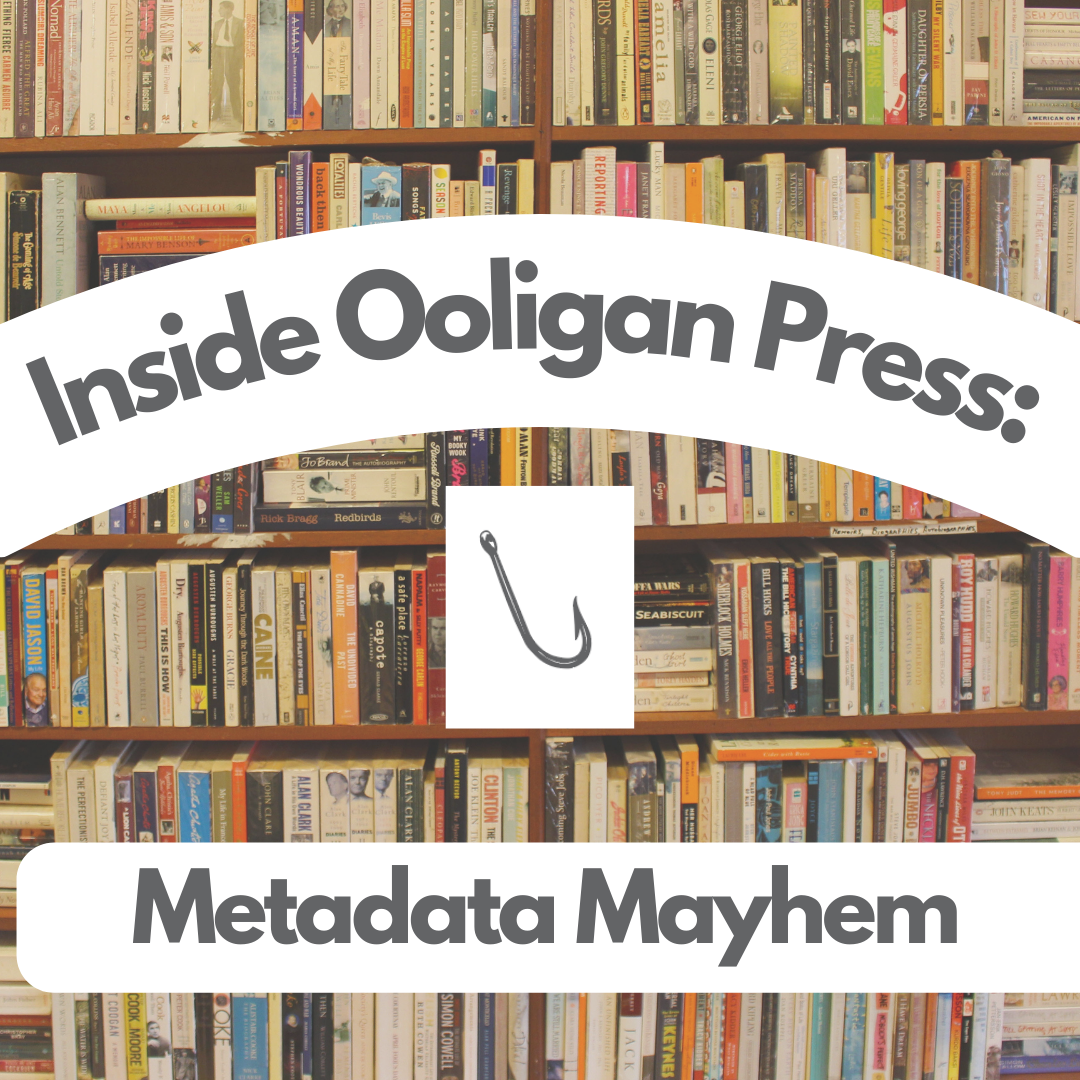Ever wonder how a publisher ensures their book will find its way into a reader’s hands, especially as more and more book shopping takes place online? Welcome to the world of metadata! Metadata is the data about our books. For most publishers, the process of gathering and perfecting a book’s metadata starts almost immediately after acquiring a new title. At Ooligan Press, this process is overseen by one or two of the publisher’s assistants, known as the Operations PAs or Ops PAs for short. Although we spend a lot of our time sorting, inventorying, organizing, and shipping our physical books, the biggest part of our job is wrangling metadata. Some points that most people are familiar with are the title, author’s name, genre, and main description. Others are a little more obscure. For example, specifics about the physical book, like dimensions and page count are also part of the metadata. So are pricing details, keywords (to improve searchability), and target audience details (age ranges for young adult (YA) and middle grade, for example).
All these metadata points are collected in a document Ooligan calls the CoreSource tipsheet, which is named after the tool we currently use to widely distribute information about our books. The Ops PAs enter the metadata into CoreSource, which feeds the metadata to retailers and libraries. Each data point represents an avenue for booksellers, librarians, and readers to search for our books. The CoreSource tipsheet isn’t something that’s written and then forgotten about; it’s a living document. It follows the book for the rest of its shelf life, so that it can continue building avenues for new readers. Information that might get added to a CoreSource tipsheet long after the book has come out includes front cover updates, awards, reviews, and new books the author publishes. We recently added Satisfaction Guaranteed to the metadata for Karelia Stetz-Waters’ Forgive Me if I’ve Told You This Before so that readers can easily find her older titles when they search her newest release.
The more data points you add, the more avenues you’re building for your audience. Unfortunately, it also means more opportunities for metadata to show up incorrectly or not at all. This is what I call metadata mayhem, especially when multiple data points are incorrect on the same title. Sometimes it’s an easy fix as was the case when a retail site was still displaying an old cover for our Library Writer’s Project title, Court of Venom . A quick email to CoreSource support got the issue resolved in less than a week.
Some errors, however, require a little more back-and-forth. Our flash fiction anthology, Short, Vigorous Roots has thirty-two contributing authors. In CoreSource, we put the two editors as the main contributors and made sure to name each of the short story authors in the main description. This distributed beautifully to most retailers, but one retailer ended up listing all thirty-two authors as main contributors instead of as the editors. I contacted CoreSource support to address it and they promptly replaced ‘author’ with ‘editor’ after each of the contributors, which was not correct. I reached out to address the issue again. This time, the editors, Mark Budman and Susan O’Neil, were added, but listed alongside the thirty-two contributors. Everyone was credited as an editor. One last email chain finally resolved the issue and it is now displayed correctly, but the experience definitely taught me to be clearer in wording my support ticket.
Sometimes, even going back and forth with CoreSource isn’t enough. Early on in the metadata checks for Love, Dance & Egg Rolls , Ooligan’s YA title that was released in the spring of 2022, we noticed that the title was spelled wrong on Powells’ website, using the word ‘and’ instead of an ampersand. A quick email exchange with someone at Powell’s revealed that the ampersand wasn’t something they could accommodate with their style guide. Fortunately, the internal keywords included the ampersand so that readers could still find the book whether they used ‘and’ or the ampersand. Even when errors don’t get resolved the way you want them to, you still learn something from the process! And now we know who to contact at Powell’s to ask these kinds of questions.
Metadata-wrangling can be a handful, but it’s well worth the effort. Equipped with the right tools and a little bit of patience, anyone can become an expert at navigating the mayhem and magic of metadata.

